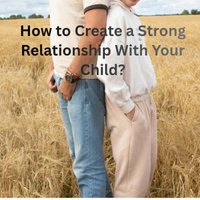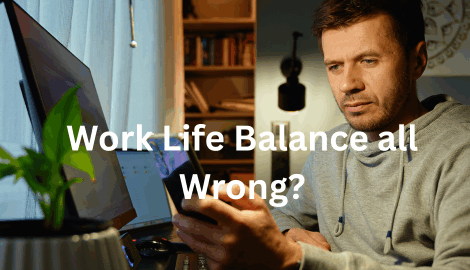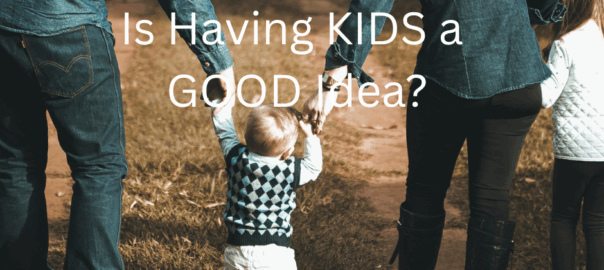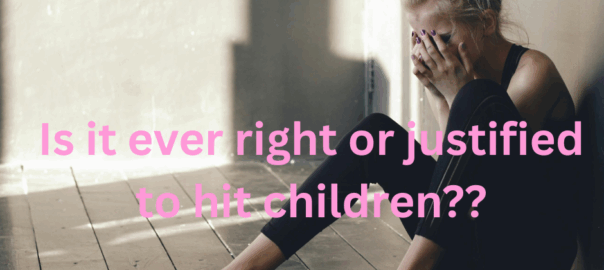Creating a Strong Relationship With your Child:
Introduction:
Creating a strong relationship that will last for life with your kids. Every parent worries constantly about their children – usually before they are even born.
We worry about them being safe and how they will thrive in a changing and challenging world.
Every parent wants the absolute best for their children and for them to mature into resilient, independent adults.
At CosyChats.com we support personalised parental support and parent mentoring. CosyChats.com offers a parenting safe space free from judgement and shame where no question is too small and not issue to big.
A powerful technique towards this is nurturing an open and sharing relationship with your child where they feel they can approach you to tell you anything – without feeling fear, guilt, or shame – only hearing your guidance.
As the milestones of my son growing up fast came and went by, I feel fortunate that he has come to me when he has needed help, advice or just to vent how he felt. I felt we had a strong relationship and that we could discuss most things openly.
At first it would be just him telling me about his day at the end of school, but then it became about his friendships and what he wanted from his life.
When we moved house we talked about him being happier and preferring being somewhere rural and meeting new people.
And then, unfortunately there are the less happy things such as the peer pressure and judgement of the teenage years, the pitfalls of dating and when education pressures start to weigh heavy.
I feel very fortunate to have this safe space in my small family for him to share with us but I don’t think it was just by accident.
My honest hope is that by using some of the ideas and tools in this blog, anyone can build openness, trust and grow the confidence in their children to share their thoughts and feelings so important in future adulthood. Building a strong relationship was important for me, i wanted my son to trust me and be able to speak to me.
Why being an Approachable and Open Parent helps build a Strong Relationship with your Children
If Work getting in the way of your family read our blog What Happens When WORK Disrupts Time With Your Kids?
Do you remember times when you felt your feelings just didn’t matter?
That time at work in a meeting when your boss ignores your opinion completely?
The girlfriend that just tells you your opinion is wrong without even listening?.
Maybe as a child when you were upset and a parent just told you to not make such a fuss..
Now do you remember the times you felt that your feelings and opinion did matter?
When someone took the time not to just listen – but to understand your viewpoint.
How they tried to change things for you you felt something was unfair
When they didn’t just dismiss you and tell you to get on with it
If you remember the difference, you will understand why it’s important for a parent to have a an open sharing relationship with their child.
If you have been treated like this you will have empathy for:
Feeling anger because your feelings didn’t matter.
Feeling shame for feeling this way to start with.
And insecurity because your feelings were rarely valued.
Knowing these things we should focus on the strong relationship we are building with our children.
It’s important to remember that in childhood we learn about the world, and how to process our emotions. The sort of relationships you form with other people.
When a child grows up without the security and comfort of having a safe space they can end up emotionally distant, insecure or scared of commitment.
Without a sense of safety, risky behaviour is more likely, because they have never felt safe.
If they aren’t successful in approaching people and expressing themselves they can end up with lower confidence, making adult life harder – the opposite of what we really wanted for our children.
The Benefits of Being an Open Door Parent to build a Strong Relationship with your child
A great way of imagining what an open parent child relationship looks like is an open door.
Your child should feel comfortable sharing anything with you but this requires trust, communication, and a supportive environment.
The door is a great analogy because it works on so many levels.
Being an open door means that you are mostly always available, but it also means that you don’t ever force or expect that conversation. You can show them that the door is open, but they have to choose if they want to share, and when. Celebrate their honesty, as the foundation to an open and trusting relationship.
It also means they are free to leave, they only have to say what they want to and can leave at will. There are ways, however of encouraging your child to share, and practical tips on how to have these conversations when they do
How to Build a Strong relationship with Your child.
How to really listen to your child – pitfalls parents fall into that create distrust
When your child chooses to start this conversation, be fully present as much as possible.
There are times of course, like when life is hectic or possibly you are driving, when it’s harder to do this. You can always agree to finish talking about it later.
During your talk, put everything else aside, put the phone down and give it your full attention.
Make them know you are listening by reflecting (asking questions or making statements to how you are listening) what they say to you as this also makes them feel validated. Make them feel seen and understood. When they do talk, be transparent and honest in your dialogue – building credibility and growing trust.
Asking open ended questions also stops the conversation shutting down.
Your child may also communicate better in different ways. A text or note might work better than face to face, talking during an activity might open things up.
If we try to take an interest in their world and what is important to them, they may also feel more comfortable in coming forward to you.
Why Really Listening to Your Child is so important
Its really important your child feels heard and knows that you as their parent will listen. Most parents will say they listen to their children but do we really listen? I think the biggest culprit is ‘distracted listening’. Listening to your child but being engaged on something else, usually your phone. Give your children attention. Make them feel their feelings matter and you care. Most parents do care and want to hear their children but often parents give the impression of being distracted.
Give Support to your Child not Judgement
As a parent is try to show empathy wherever possible and ask open-ended questions. Children are more likely to talk if you listen without judgement or criticism. A technique for this is to say ‘I’ instead of ‘you’ statements, taking the focus off them. Also encourage them to talk by praising their honesty. Use words that support and show your love, not criticism or minimising the problem.
It’s also important to stay calm if the conversation gets tough or touches on taboo subjects – it’s important they feel safe coming to you in the future.
You can show your support by brainstorming and working on problem solving solutions together – as a team.
Be mindful that building a strong relationship with your child takes time and the relationship will be tested. Being a parent means considering the long term relationship and not reacting or worse over reacting to the extent your child child not fears being able to tell you things.
How to spend quality time with your child and still be a parent.
Quality time with your child is a given for a great relationship with your child.
It’s also a great way to encourage them to be open with you. By choosing activities they enjoy, they will be relaxed and more inclined to talk.
Find rituals that stick, a chat at bedtime or the school run and family dinners eaten together.
Personally I would take my son on a bike ride, or a hot chocolate as a treat on Fridays.
Experiment what works for you and your child don’t force it just find something you can enjoy with a treat ideally. The hot chocolate is our father son thing, something we enjoy together and strengthens the bond between us.
If you do this regularly enough you can also check in, asking them how they are doing.
Start this good parenting habit early so it becomes their normal. Try to keep your promises to be there – but don’t expect that they will automatically open up to you. Be patient especially with teens. You build a strong parent child relationship but it will change and you will have to adapt your parenting style. Things change for teenagers and what was cool pre-teens may not be anymore, including you.
Balance a child’s right to privacy with parental responsibility.
Another facet of keeping your parent child bond connected is to respect your child’s privacy. If they feel you are intruding they are less likely to be open with you or share problems in the future.
Balancing your child’s right to privacy and your role as a parent can be difficult at times. If your child is at risk then you may reasonably decide their privacy is a secondary concern.
My advice would be if you can look into their life without them knowing then consider it. Checking phones is a big one. If you can check it without them knowing then this maybe a good solution. You need to be prepared to defend and explain your right as a parent to delve into your child’s personal life though.
It maybe better to be up front and ask your child more personal questions but this may just shut them down and highlight your interest. Its not ideal but sometimes being a parent involves being sneaky.
Ultimately your parental responsibility is to keep your children safe and free from harm. The wishes of your child are out weighted by the right of you as a parent to them i think. If you explain why you breached their privacy your child may not like it but hopefully they’ll understand why you did it as their parent, because you love and care for them. Sometimes listening takes a back seat as a parent and you need more direct action to help and support your children.
Modelling good parent behaviour and sharing vulnerability
Maybe in the past you have heard other parents say,”Do as I say, not as I do”.
Hopefully this is just a way of saying that as parents we know we are not perfect.
This aside though, a very powerful way of encouraging your child to be open and share with you- is to do this yourself. Don’t be afraid to open up your life before you were a parent to your child.
Whether during a period when they are beginning to open up to you, or just in general. They can only feel more comfortable to talk when you nurture an environment of openness and trust. Sharing the times you went through similar problems, and how you personally overcome them. Builds trust and will bring you together.
For me personally – not hiding my own problems from my son- mental or physical brought another affect that I did not even expect.
Being open, being honest, takes away the pressure of hiding it from your child. From pretending that everything is fine. This is a weight off your shoulders that nobody including parents needs to carry.
Sometimes what your child might say could even surprise you in how useful it is to your problem. Our children should not be our therapists, but they see the world in a much more open and simple way.
You may be surprised how helpful and understanding your children can be to your needs and see you as more than a parent who tells them what to do and a human who has their own frailties.
How guidance and not punishment can help you form a better relationship with your child
Focus on what you as a parent wanted to achieve with your child.
Creating a parent child safe space will bring benefits to both of you, and strengthen your relationship for a lifetime.
Although there are times when there will need to be punishment for your child, the occasions where they have shared something difficult might not be one of these times.
This doesn’t mean there can’t be consequences for your child, but by focusing on the guidance, and explaining how it’s different from punishment – the outcomes will hopefully be more positive and your child will still want to share with you in the future.
By removing fear and retribution, and by using problem solving and discussion then you can have healthier consequences and not just punishments without any subsequent change.
Being a parent means you have to think of the war and not just the battles but also battles aren’t really battles, they are opportunities to provide guidance to your child.
Conclusion
Building an open, sharing relationship with your child doesn’t happen overnight.
It needs a lot of patience and experimenting to find out what works.
But it is worthwhile. The bond of trust and dependability will build resilience, trust and a relationship that will last a lifetime.
Even if you feel you don’t have this quite yet, it’s never too late to start.
Start small by introducing ritual quality time with your child with regular check-ins. Tell them you are always available for them, be patient and practice active listening.
Be open to sharing feelings and thoughts in both directions with your child to grow their trust.
If you wish to discuss this further or get help with any other parenting issues. Feel free to contact me on CosyChats.
CosyChats.com hosts experienced parent who can provide Personalised Parent Support including interacting and communicating with schools.
CosyChats supports personalised parent support. CosyChats offers a parenting safe space free from judgement and shame where no question is too small and not issue to big.
Why Parents Should use the CosyChats parent support service.
🛟1-2-1 Personalised Parent Support Sessions
🧷Safe Parent Support Spaces Free From Judgement and Shame
👍🏼Where No Parenting Problem Is Too Big and No Parenting Question Too Small
👩👦Parents Supporting Parents Offering Compassion and Understanding
🆘Practical Parenting Support Created by UK Parents
🧑🏼🦱Parent Mentoring from Parents with Real Lived Parenting Knowledge & Experience
💻Online Parenting Support from the comfort of your own home.
Top 10 Benefits of the CosyChats parent support service.
👍🏼Access to a wealth of Parenting Experience and Knowledge.
👍🏼A Personal Parenting Mentor for you
👍🏼Parent support via phone, Text or On-Line.
👍🏼Parent Support Groups for key development stages
👍🏼Flexible parenting support sessions.
👍🏼Online parenting support at a reasonable cost.
👍🏼Parent support sessions can be gifted to a parent who needs parental support.
👍🏼Parent to parent support group harness wide parenting experience.
👍🏼Parenting support services are booked in 10 minute slots.
👍🏼Parenting support from real parents who want to help.
Thank you for reading the blog (how-to-create-a-strong-relationship-with-your-children). Understanding how creating a strong bond with your child is beneficial. Can change the way you think about parenting your child.


 1-2-1 Personalised Parent Support
1-2-1 Personalised Parent Support Safe Spaces Free From Judgement and Shame
Safe Spaces Free From Judgement and Shame Where No Problem Is Too Big and No Question To Small
Where No Problem Is Too Big and No Question To Small Offering Compassion and Understanding
Offering Compassion and Understanding From Real Parents Who Know How Difficult Being a Parent Can Be
From Real Parents Who Know How Difficult Being a Parent Can Be Real Lived Knowledge & Experience
Real Lived Knowledge & Experience Virtual Sessions Where You Are In Control
Virtual Sessions Where You Are In Control


